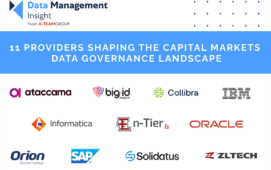Banking participants at last week’s CorpActions 2010 conference in London agreed that regulations are needed in order to compel issuers to provide corporate actions data in the right format at the start of the process. Justin Chapman, global head of strategic implementation for Asset Servicing at Northern Trust, contended that mandatory data tagging of corporate actions documents at the source, such as the requirements introduced in the US by the Securities and Exchange Commission (SEC) for XBRL tags, might be of benefit to the industry as a whole.
Paul Bodart, executive vice president and head of EMEA global operations at Bank of New York Mellon Asset Servicing, noted that the issuer community has been resistant to change and this has been made even more problematic by the lack of an association to represent this community in some countries. These issuers are therefore kept out of the loop with regards to standardisation discussions due to the difficulty in reaching them.
Fellow panellists also noted that issuers are not as concerned with the total cost of ownership (TCO) of the corporate actions processing lifecycle because they are disintermediated from the problem. Intermediaries are therefore forced to swallow the costs of sorting out the data and processing challenge and are unable to pass the costs back to the issuers.
Dean Hogan, executive director of Worldwide Securities Services for Asset Servicing and transaction processing head at JPMorgan, however, reckons that the issuer community may benefit from increased standardisation in the long run. “For issuers, their shareholders will receive better data on which to base decisions and therefore become more involved in the corporate actions process,” he argued.
Hogan suggested that a “regulatory prompt” should be used to get the issuers to tackle the data challenge at the point of entry, but noted that issuers need to also be convinced of the benefits of the approach with regards to shareholder activity and cost reduction. “After all, issuers have to pay a fortune for advice from lawyers with regards to corporate actions structuring, surely if the process was more standardised these costs would come down?”
To this end, David Hands, director of asset services product management at DTCC, and Max Mansur, global market manager for asset servicing at Swift, both championed the idea of XBRL tagging as the solution to the issuer origination problem (more on this tomorrow). By tagging the source documents with XBRL, issuers make the whole process of messaging for corporate actions much easier they contended. Swift and DTCC are taking the idea of global applicability seriously, given their endeavours to map XBRL to the ISO 20022 standard for future compatibility, after all.
Subscribe to our newsletter



